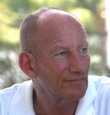With a dagger in your hand, or a loaded gun nearby….anger is particularly dangerous. It’s one thing to slam doors, throw plates or simply yell, scream or have a temper tantrum. It’s an altogether different level of concern when weapons are involved. Anger itself is not a dangerous emotion; it’s the decisions that arise from an angry mind that become dangerous. Any person who is angry has choices about how to deal with that emotion. Unfortunately, almost by definition, anger is not rational, and the decisions made while angry are not thought out…. Although consequences may be clear about what would happen should a person do this or that out of anger, that angry mind is not clear, and often does not incorporate consequences into its immediate calculations. That impulsive, reactivity makes anger dangerous, especially should a weapon be available nearby.
Anger is not something that can be turned on and off by conscious choice. Anger is triggered by deep-seated internal thought patterns activated by environmental situations. However, anger can be managed. Anger management classes are taught throughout the nation with the purpose of teaching the ways and means of understanding, managing and, in some cases, diminishing, the anger response. Most of these classes focus on how the event itself is not the cause of our anger, but rather what we tell ourselves about the event that triggers the anger. This is useful information and many people complete anger management classes with a much better understanding of its dynamics and tools to use to help manage, diminish and in some cases completely abate anger. This is not to say that there are times when anger is an appropriate response…for there are. But, when anger becomes violent, it has gone too far. Most people in anger management classes are court mandated as a result of domestic violence, which is brought on by the rise of anger.
Anger rises for two main reasons. The first is unmet expectations, desires or wants. The second is loss. Unmet expectations, desires and wants could actually be placed in the loss category, for when we don’t get what we want, or when our expectations or dreams are shattered, it is a loss. It is sometimes said that underneath anger is sorrow, and sorrow is an appropriate response to loss. But, if a person is culturally conditioned to deny or avoid the feelings of sorrow, then anger, which is often more acceptable than sorrow, is expressed.
If anger is not expressed, if it is denied or stuffed down inside, it can fester. It is said that depression is anger turned inwards. Anger, regardless of its origins, must be expressed in some way, preferably a healthy way…. Here are some ideas for expressing anger in appropriate, healthy ways…
· Strenuous physical activity such as running, biking, working out with weights, push-ups, sit-ups or a game of racquetball. Ironically, anger can be used to increase physical health through this behavior .
· Turn on some high energy music and dance intensely
· Beat up a pillow or a punching bag
· Tear up old newspapers or old phone books
· Bang on a set of drums, or a table, floor, chair, wall….whatever inanimate object is available to use your hands to not only hit something, but to turn it into a musical experience.
· Throw things; find a safe place to go throw rocks; buy some cheap plates or cups at a thrift store and throw them. The key word here is “safe place.”
· Sit in your car, with the windows rolled up, and scream your head off.
· Laugh loudly. It may seem contrived and fake at first, but you may find yourself genuinely laughing after you get going.
As long as the danger is taken out of anger, it is safe enough, can be released, and managed, appropriately.
Ken Fields is a nationally certified licensed mental health counselor. With over 25 years in the mental health field, he has worked as as an individual and family therapist throughout school districts and within communities, a crisis intervention counselor, a clinical supervisor and an administrator in a human service agency. He has taught classes in meditation, visualization, goal setting, self-image psychology, anger and stress management, negotiation, mediation and communication, crisis intervention, and parenting. Mr. Fields specializes in Cognitive Behavior Therapy, Family Systems Therapy and Communication Coaching. As a practicing counseling psychologist, Mr. Fields brings decades of specialized training and applied skills to his work. He now provides quality online counseling services at http://www.openmindcounseling.com


